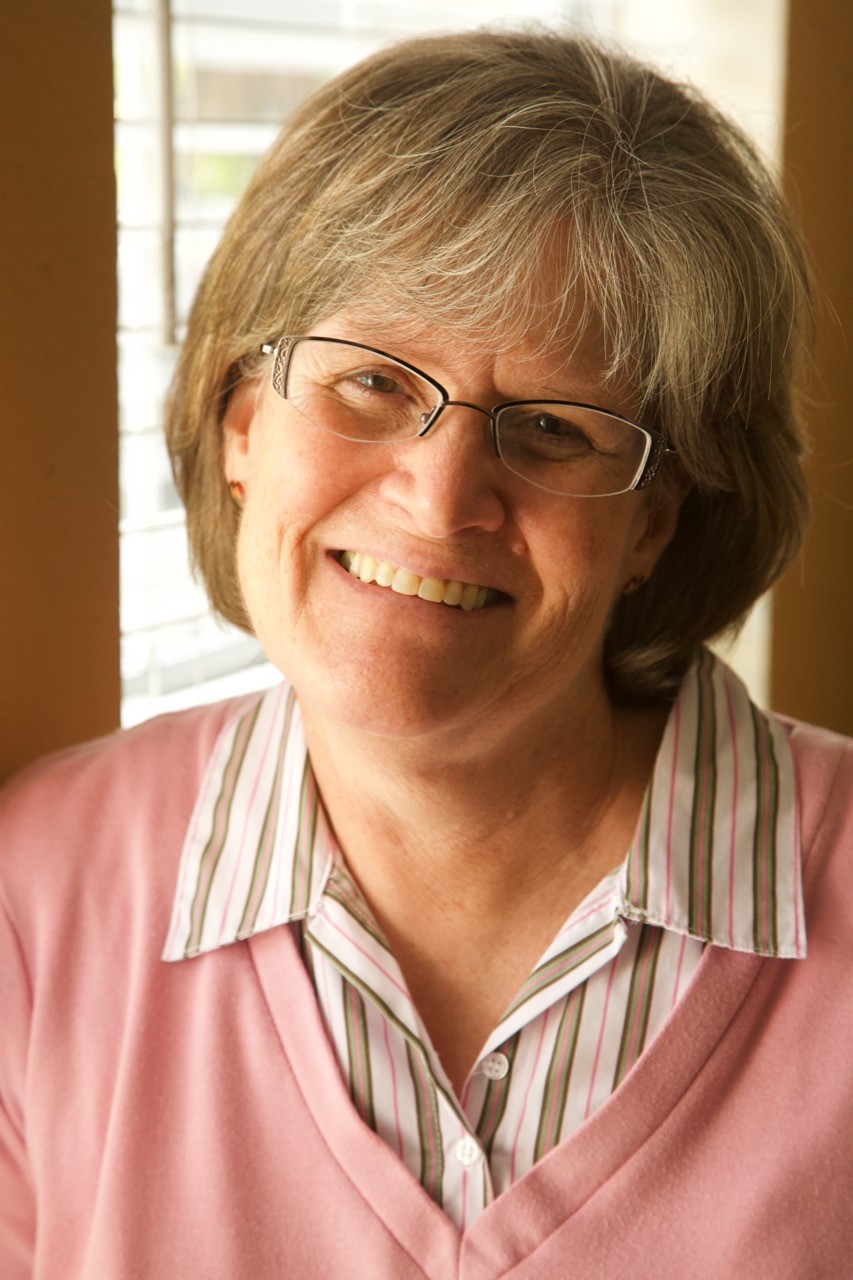Of all the reasons people leave the Church of Jesus Christ of Latter-day Saints, one is rarely mentioned: “Because my children left.” Yet, I have seen it too often; a family exodus begins, not with the parents, but with the older children. These are not petulant, bored teens, but thoughtful and troubled young adults who are saturated in the culture around them. As the gap widens between that culture and the teachings of their youth, it is increasingly hard for them to “choose the right.”
Spiritual alienation from children can be unbearable for parents. Our gospel is not just a belief system, but a way of life and daily observances that set us apart in unique ways. Unlike many faiths, Latter-day Saints are “all or nothing” and “no empty chairs.” Can you hold to those beliefs and observances when you’re the only one remaining in the chairs?
For some parents, family alienation is so unbearable that they come to question what they thought they knew. This is amplified when the child thinks deeply and critically, as you taught them to do. As young adults, they are listening to strong, educated, sophisticated voices, some pointing out the perceived failings of the church, which, to your children, seems increasingly out of touch.
A natural phase of the parent-child relationship comes when the parent learns to listen respectfully to differences of opinion from the child. You may have even been persuaded to change your mind based on your child’s argument. We share inspiring stories about the children who bring parents into the church. There’s a pride that comes from having your maturing child tell you something you didn’t already know. If the next generation is smarter than the last, that’s a form of eternal progression in its own right. Then your child says, “I want to advocate for unregulated abortion.” Or, “Organized religion is responsible for so much bigotry.” Or (and this is the elephant in every room) “The church is hurting LGBTQ people.”
It makes a parent long for a simpler time. An acquaintance of mine, coping with a daughter who had embraced gender fluidity, recently said to me, “I would be so happy if she was just a lesbian.”
Millennials are leaving the church in ever increasing numbers. Although different studies report different retention rates for Latter-day Saint young adults (one – the General Social Survey – reported the rate for those born after 1981 at only 46 percent), the most reliable, the Pew Research Center’s Religious Landscape Study set the retention rate for Latter-day Saint millennials at 62 percent.
The reasons millennials leave are shifting. They are delaying marriage and childbirth – two reliable indicators in the past of a draw to religion. One old standby, leaving after being personally offended, has been replaced by leaving because of hot-button social issues — the role of women, LGBTQ issues, exclusive truth claims, and persistent racial stereotypes.
In the distant past, the easiest solution was for a parent to disown the “apostate” child – the lesbian, the drinker, the unwed mother, the one “living in sin.” Your grandparents may have turned their backs on a child to save the family embarrassment, as mine did. My brave mother brought her parents and a sibling to reconciliation when she metaphorically slapped her stubborn parents upside the head and told them the child they had sent away needed them more than ever.
In this age of parental enlightenment, you hopefully can’t imagine disowning a child. But, can you imagine a parent who is torn between staying in the church and leaving with their children? We understand when someone takes a break from the church to keep peace with a spouse. A bishop may have advised such a compromise to save a marriage. But is there a similar support for keeping the peace with children?
What if you can’t say grace at your own table at Thanksgiving? What if your child doesn’t want to hear about your new calling, or your joyous day in the temple sealing their ancestors to the family? What if you’re giving all your love to an LGBTQ child, but they don’t believe you are sincere as long as you are allied with the “haters” they perceive in the institutional church. Those stressors are like a splinter under your skin that won’t go away. It’s understandable that you may look back on those endless years of teaching, praying and urging them to stay on the path and think it was all a waste. The path has become a treadmill and you’re the only exhausted one still on it. It would be so much easier to step off, to be “with” them.
But, there are alternatives to following your loved ones out of the church.
First, ask yourself, what would Jesus do? In fact, we know what he did. There is evidence in the scriptures that his half-siblings (children of Mary and Joseph) rejected him as the Messiah. The gospels of Matthew and Mark tell us Jesus had four brothers – James, Joseph, Jude and Simon – and unnamed sisters. (Matthew 13:55; Mark 6: 3) These siblings do not appear in the Gospels as Jesus’ followers when he was alive. In fact, it was his brothers who encouraged him to leave Galilee and go to Judea, “where the Jews sought to kill him.” The brothers wanted Jesus to prove himself in public among the Jews. “If thou do these things,” they told him, “shew thyself to the world. For neither did his brethren believe in him.” (John 7:3-5)
Once, when Jesus was preaching in Galilee, his family approached outside the house where he taught and called him to come out. “And the multitude sat about him, and they said unto him, Behold, thy mother and thy brethren without seek for thee. And he answered them, saying, Who is my mother, or my brethren? And he looked round about on them which sat about him, and said, Behold my mother and my brethren! For whosoever shall do the will of God, the same is my brother, and my sister, and mother.” (Mark 3:31-35; also told in Luke 8:19-21)
In his dramatic response, I don’t think Jesus is telling us to turn our backs on our loved ones who disagree with us, but he is telling us that sometimes we will have to find strength among believers.
Faithfully attend your meetings and fulfill your callings, even if it means sometimes choosing Sacrament Meeting over a family event. In your children’s vernacular, “You do you.” Then, when you show up late for that family party, come with a countenance that reflects your joy at being with them. There is no need to “tsk, tsk” about partying on the Sabbath, or that keg in the back yard. Be grateful you were invited into the warm embrace of your children. Create moments of joy with them. If you allow it, that becomes a form of spiritual intimacy that transcends belief systems.
In addition to seeking solace among the faithful as Jesus did, seek communion with your Heavenly Father in sacred places as Jesus did. The temple is the one place where your worship is fully respected, not judged, and entirely personal. Use the temple as your place of renewal, and a constant reminder of the eternal potential of your family, just as Jesus knew the potential of his. There is evidence that his siblings came into the fold after his resurrection, as he knew they would. Notably, his brother James became known as “James the Just” who led the early Christian Church in Jerusalem, and was, by some accounts, stoned to death for his faith.
Jesus also knew what it was like to stand alone among friends in believing a strange doctrine. When he taught that the bread and wine were representative of eating his flesh and drinking his blood, his disciples were appalled. “This is a hard saying. Who can hear it,” they murmured among themselves. And Jesus responded, “Doth this offend you?” Yes, it did. “From that time many of his disciples went back, and walked no more with him. Then said Jesus unto the twelve, Will ye also go away? Then Simon Peter answered him, Lord, to whom shall we go? Thou hast the words of eternal life. And we believe and are sure that thou art that Christ, the Son of the living God.” (John 6: 60-61; 66-69)
When you hear hard sayings (pick anything the prophet says that challenges a cultural juggernaut) you have the same choice as the disciples of old. You can go away, or choose the words of eternal life.
In the October 2022 General Conference, I listened with the intent of hearing counsel that could apply to this topic, and I was not disappointed.
From Elder Jeffrey R. Holland: “To be a follower of Jesus Christ, one must sometimes carry a burden — your own or someone else’s — and go where sacrifice is required and suffering is inevitable. A true Christian cannot follow the Master only in those matters with which he or she agrees. No. We follow Him everywhere, including, if necessary, into arenas filled with tears and trouble, where sometimes we may stand very much alone.”
From Elder D. Todd Christofferson: “It is a sad irony, then, when someone, feeling he or she doesn’t meet the ideal in all aspects of life, concludes that he doesn’t or she doesn’t belong in the very organization designed by God to help us progress toward the ideal… [T]rials, and even suffering, are a normal part of life—and maybe even part of a good life, if that suffering teaches us how to be patient, kind and loving… We don’t join the Church for fellowship alone, important as that is. We join for redemption through the love and grace of Jesus Christ. We join to secure the ordinances of salvation and exaltation for ourselves and those we love on both sides of the veil. We join to participate in a great project to establish Zion in preparation for the Lord’s return.”
From Elder Gerrit Gong (I recommend his entire talk on “Happy and Forever” families): “Our Savior is our Mediator with God, but He also helps bring us to ourselves and each other as we come to Him. Especially when hurt and pain are deep, repairing our relationships and healing our hearts is hard, perhaps impossible for us on our own. But heaven can give us strength and wisdom beyond our own to know when to hold on and how to let go… Happy and forever do not mean that every relationship will be happy and forever. But a thousand millennial years when Satan is bound may give us needed time and surprising ways to love, understand, and work things out as we prepare for eternity”
From President Russell M. Nelson: “I grieve for those who leave the Church because they feel membership requires too much of them. They have not yet discovered that making and keeping covenants actually makes life easier! Each person who makes covenants in baptismal fonts and in temples—and keeps them—has increased access to the power of Jesus Christ. Please ponder that stunning truth! …The truth is that it is much more exhausting to seek happiness where you can never find it! However, when you yoke yourself to Jesus Christ and do the spiritual work required to overcome the world, He, and He alone, does have the power to lift you above the pull of this world… My plea to you this morning is to find rest from the intensity, uncertainty, and anguish of this world by overcoming the world through your covenants with God. Let Him know through your prayers and your actions that you are serious about overcoming the world. Ask Him to enlighten your mind and send the help you need… [From his apostolic blessing] I bless you to care more about the things of God than the things of this world. I bless you to see the needs of those around you and strengthen those you love. Because Jesus Christ overcame this world, you can too.”
With God on your side, you are never alone, even if your family connections are not what you had hoped for. The outcome in the struggle between good and evil is already known. The late Christian psychiatrist M. Scott Peck wrote in his book, The People of the Lie: “The resurrection symbolizes not only that Christ overcame the evil of His day two millennia ago but that He overcame it for all time. Through it, the defeat of evil is utterly assured. It is vitally necessary that we struggle against evil with all the power at our command. But the crucial victory occurred almost two thousand years ago. Necessary and even dangerous and devastating though our personal battles may be, unknown to us they are but mopping-up operations against a retreating enemy who has long since lost the war.”
This is not to say that your children are “evil,” or the “enemy.” They are collateral damage in a war that began in the pre-existence against the father of all lies. Your job is to stand as a beacon for them until they see, by that light, the darkness of Satan’s battle plan.
Be like Nephi who, even when he didn’t know the meaning of all things, he did know that God loves his children. (1 Nephi 11:17) You, too, don’t have all the answers, but you love your children. Love them enough to hold firm to the faith and to them.


















